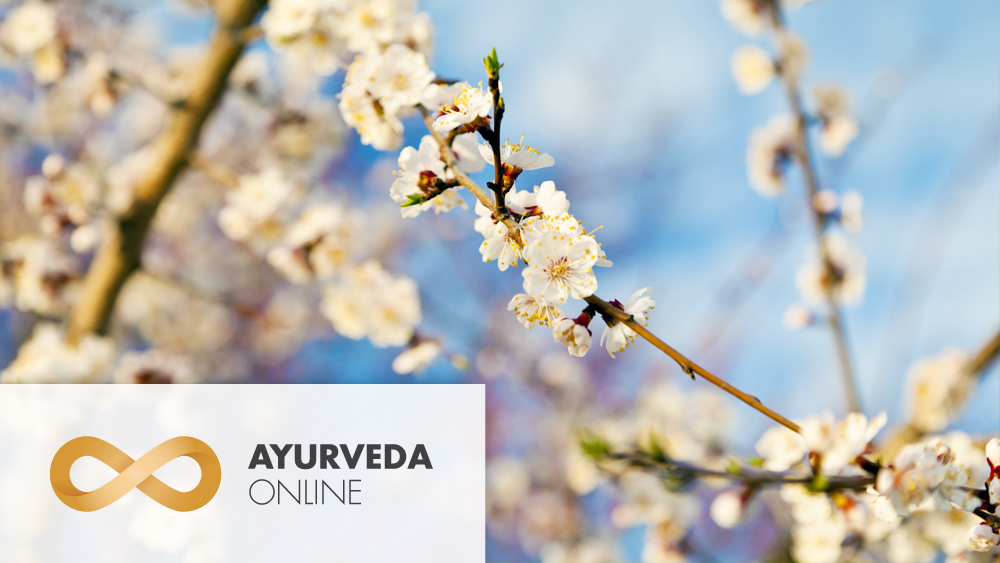I found myself asking why people might bother with a programme touting ancient methods of healing in a fast paced world of modern technology. If I’m interested in being well, surely I already take clean vitamin pills, eat a healthy diet, exercise, adopt positive thinking and measure my progress? And it is true, some of these are vital ingredients of an Ayurvedic lifestyle (appropriate diet, exercising the body and nourishing a clear mind). But Ayurveda is about so much more than this.
The wisdom tradition of Ayurveda promotes healing and wellbeing.
It regards the individual as a whole being with so much that is already right with us. But beyond this, it emphasises the relationship between the individual and the environment, what it calls the microcosm and the macrocosm. It has a rich appreciation for living in harmony with nature by uncovering the unconscious ways in which we already communicate with the universe and with each other. It proposes tools for restoring balance in a constantly changing world. In this regard Ayurveda is not unlike mindfulness and yoga: all these traditions cultivate awareness, which we are only beginning to explore and understand through the lens of modern science.
So what does Ayurveda, especially when combined with yoga and mindfulness bring that adds value today?
1. Individuals are complex systems seeking balance within the context of larger multifaceted systems.
Ayurveda treats an individual rather than a disease. It seeks to end suffering and restore wellbeing. Homeostasis itself is seen as constantly shifting and the empowerment of the individual to know how to restore balance is regarded as primary. The approach is patient or learner-centred. One of the chief measures of success for the promotion of harmony is to check how we feel and how our relationships, both with ourselves and with others are faring.
2. The individual is the authority on their condition and their healing.
In a world in which we would like others to take responsibility for our healing, the wisdom traditions offer support and encourage partnership in healing. In other words, we rely on the expertise of practitioners in whose hands we place our care, allowing them also to nurture that part in us capable of caring for ourselves. As we become stronger, the relationship and dependency changes.
3. Every individual has the capacity for healing and realising their wholeness.
Ayurveda regards every person as ‘already whole’ and emphasises a focus on the part that is well in order to raise that which is unwell to this healthier level. This is not to say that Ayurveda denies conditions and dis-ease. Instead it alleviates symptoms but always with the larger vision of ending the root of suffering, once again underscoring the common agenda with mindfulness and yoga.
4. We participate in a living universe.
The wisdom traditions celebrate the human form as part of a vast cosmos or consciousness. Learning to see ourselves beyond the confines of the human form and the apparent boundary of the skin encourages us to participate in the world with all our faculties and potentials, as beings not only with physical bodies and minds, but also seeking spiritual expression.
5. The whole is greater than the sum of the parts.
Whether considering the individual, communities or the cosmos, Ayurveda considers restoration of health in relation to our communities and environments. The individual is not seen in isolation of family and community conditions and influences. Ayurveda takes account of conditioning, communication patterns and support systems to ensure that any healing regimes are possible and appropriate for an individual.
It seems that these foundations of Ayurveda come into prominence as we realise the importance of our health and wellbeing and the taking care of ourselves.
Further Information
This is the first in a series of articles on the value of Ayurveda in the modern world. They highlight CMI’s promotion of Ayurveda as part of the wisdom traditions. We employ mindfulness and yoga to bring Ayurveda to life.
Please visit our sister site for more information on Ayurveda and how you can train in person and online.
To follow this and other posts on Mindfulness, Yoga and Ayurveda, please sign up to the CMI mailing list. To receive specific updates on Ayurveda, ensure you select ‘Ayurveda’ updates.





Leave A Comment